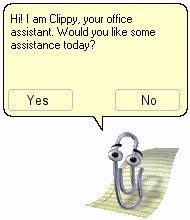An IDE Impostor
by Dan J.
in Feature Articles
on 2013-10-08
Despite having written code for twenty years before he'd even turned thirty, Jim couldn't help feeling like a bit of an impostor. He wasn't suffering from the Capgras delusion, though. He felt the way many of us feel when presented with a new job using new technology - in this case, the .NET framework and C# - that surely he couldn't be good enough at this to keep the job for very long. Surely his peers would find him wanting. While Jim struggled with his own self-worth, one thing he didn't struggle with was choice of IDE: Visual Studio. Intellisense, one-click refactoring, and a host of other features allowed him to fake it till he could make it. As far as Jim could tell, there was no reason to use anything else when developing a .NET solution.

Jim's first assignment was to work on a codebase created by Biff. Biff was a Something-Something-Level 3, so Jim was ready to learn a few new things when he fired up Visual Studio and opened Biff's solution. And learn he did. For example, he learned that VS marks syntax errors with a red, squiggly underline, much like Microsoft Word does with spelling and grammar mistakes. Biff's code lit up like a first-grader's essay about summer vacation, loaded as it was with misspelled identifiers, missing semicolons, and AWOL closing braces. Jim would have wondered if Biff had ever tried to compile the mess, but he was too busy wondering if the senior developer made a habit of typing with his eyes closed, since Visual Studio would have helpfully pointed out these sorts of mistakes as he made them.

 Sep 13
Sep 13 Most folks know that I've spent the last couple of years on Team-WTF in Department-WTF at WTF-Inc. A while back I
Most folks know that I've spent the last couple of years on Team-WTF in Department-WTF at WTF-Inc. A while back I  Like a ninja in the night, Hanz M., AKA Hanzo, stalks across Hesse University’s Dresden campus. The go-to man in the IT department, he fixes the messes that others leave behind. This is one of his stories.
Like a ninja in the night, Hanz M., AKA Hanzo, stalks across Hesse University’s Dresden campus. The go-to man in the IT department, he fixes the messes that others leave behind. This is one of his stories.
 Joe G. was working for a financial company that had accumulated more than 20 years' worth of code and cruft. This was compounded by management being convinced that the source of all of their technical problems was IT not caring enough about business interests, rather than two decades of short term thinking. They refused to acknowledge the company's technical debt and believed that IT employees' attitudes were solely responsible for their growing reliability problems.
Joe G. was working for a financial company that had accumulated more than 20 years' worth of code and cruft. This was compounded by management being convinced that the source of all of their technical problems was IT not caring enough about business interests, rather than two decades of short term thinking. They refused to acknowledge the company's technical debt and believed that IT employees' attitudes were solely responsible for their growing reliability problems.